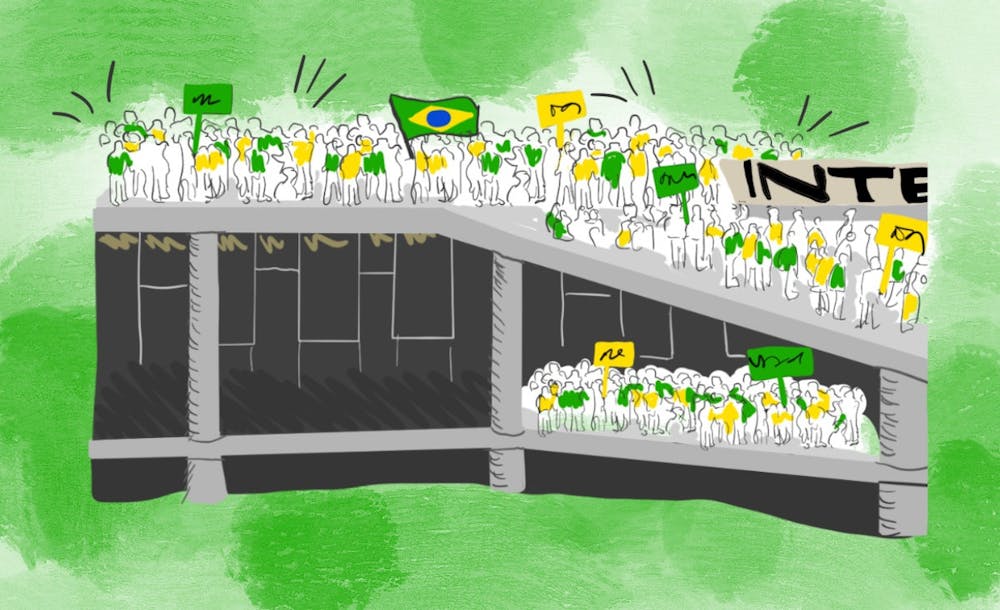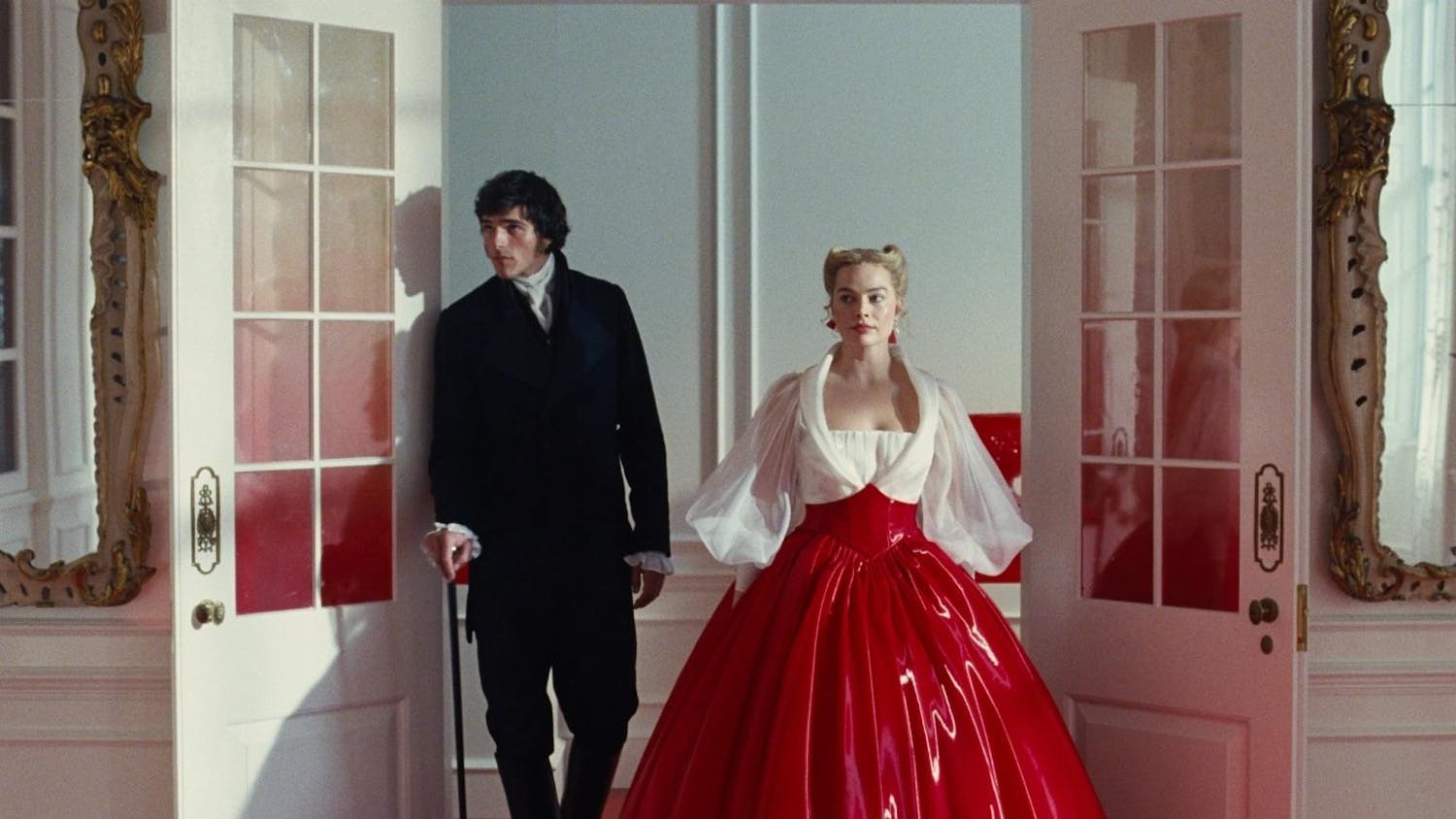Deborah Cherman ’25 was visiting her grandparents in São Paulo, Brazil when thousands of rioters stormed the Supreme Court, Congress and presidential buildings in Brasilia, the country’s capital, in an attempt to seize power away from newly-elected president Luiz Inácio Lula da Silva.
Many of the rioters were supporters of Jair Bolsonaro, Brazil’s far-right, previous president who lost his post in October’s runoff election to leftist Da Silva, who assumed office at the beginning of the year.
On Jan. 8, only a week after Da Silva was sworn into office, Cherman found herself sitting with her grandparents in front of the television for hours, watching the events of the riots unfold.
“It was really shocking just to watch,” Cherman said. “It’s one of those things where you can’t take your eyes off it.”
Rioters demanded military aid in ousting Da Silva from his post and restoring Bolsonaro to presidency. According to AP News, several hours passed before the government regained control of Brasilia’s Three Powers Plaza, where the buildings are located. Hundreds of participants have since been arrested.
Camila Dangot ’25, who was born in Brazil before moving to the United States as a child, remembered feeling an overwhelming sense of political responsibility as she followed the news on the day of the riots. “I still have to be informed and conscious of everything that is going on politically (in Brazil) because I do vote,” Dangot said. “I have some sort of influence, so I need to be sure that what I’m doing is informed.”
Dangot was particularly struck by the scale of destruction committed by the demonstrators, who “bypassed security barricades, climbed on roofs, smashed windows and invaded all three buildings,” AP News previously reported. While the buildings were largely vacant over the weekend, rioters flooded the ground floor of the Congress building and raided the presidential palace offices.
Demonstrators also destroyed several art pieces on display within the buildings. Many of these pieces held significant historical value, representing the fifteen presidents who have served Brazil since Juscelino Kbuitschek’s presidency from 1956 to 1961, according to Rogério Carvalho, director of curatorship of the presidential palaces.
“A lot of unique artwork was destroyed,” Dangot said. “It’s just priceless artwork that you can’t ever get back.”
For Roni Wine ’24, an international student from Brazil, the demonstration was jarring, but not surprising. “This was just the cherry on top of a cake that was baked over the past four years,” he said, referencing the growing political polarization in Brazil. “Those who didn't see it coming chose to close their eyes'' to reality.
According to James Green, professor of modern Latin American history, the thousands of rioters who stormed Brasilia represent only a faction of devoted Bolsonaro supporters who did not accept October’s election results.
“They participated because they believed falsely … that the elections were manipulated by (Da Silva) and the Supreme Court,” Green said. “There’s a lingering force of quite a few people who don’t believe in the current government and will mobilize against it and may attempt other violent actions in the future. … It’s going to be a period of quite a bit of polarization.”
Dangot witnessed this sense of political divide at a personal level. Her family gathered for an annual reunion in São Paulo a few days after the riot and, although no one directly talked about the riot, Dangot described it as “a tense situation.”
She also expressed concerns about the state of Brazil’s democracy going forward. “Brazil hasn’t had the most democratic (or) peaceful political past, so it’s scary to think of what direction we’ll be going in the future,” she said.
“As everywhere in the world, … there’s no guarantee for democracy,” Green said. “The extreme right in Brazil … enter (democratic institutions) to undermine them and to take away peoples’ rights and peoples’ dignity in the process.”
But Green has hope that Brazilian democracy will last despite this threat. “Even though this was a horrible act … the institutions that needed to respond appropriately mostly did,” he said.
For Cherman, that hope depends on a strong and deliberate response to the riots. Da Silva has detained over 1,500 rioters so far and is conducting an ongoing investigation into the participants, Bolsonaro and top government and military leaders, according to an article from the New York Times.
“I think people are expecting to see a lot more enforcement (from the government) to make sure that we keep our democratic rights,” Cherman said.
Wine echoed Cherman’s sentiment, adding that the nation’s resiliency and recovery from the riot must be an active process.
“We must strengthen our democracy and rebuild our institutions,” he said. “It won't be easy, but … military-lovers, anti-democratic and far-right politicians and voters will live to see the consequences of their acts.”
Dana Richie is a senior staff writer for Arts and Culture and the photo chief. She enjoys using multiple forms of media to capture peoples’ stories and quirks. In her free time, she loves knitting, learning about local history and playing ultimate frisbee.





